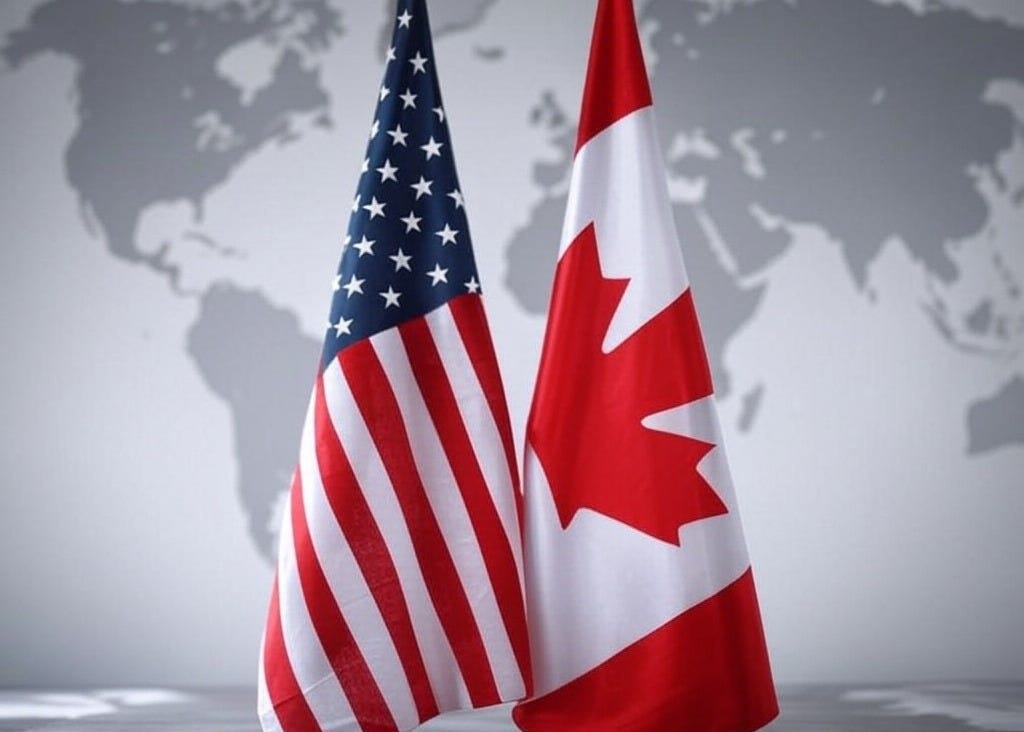Trade War Between U.S. and Canada: Economic Ripple Effects Across North America
What it means for both countries
In an unexpected move, President Donald Trump has imposed significant tariffs on Canadian goods entering the United States, marking a new chapter in the already complex economic relationship between the two nations. Announced on February 1, 2025, these tariffs encompass a 25% duty on most Canadian products, with a reduced 10% on energy resources. Here's what this means for the economies of both the USA and Canada.
Immediate Economic Impact in Canada:
Export Decline: Canadian exporters are facing a daunting challenge with the new tariffs diminishing their competitive edge in the U.S. market. This could lead to a significant drop in exports, affecting industries from energy to manufacturing.
Job Losses: Estimates suggest that around 150,000 jobs could be at risk in Canada due to reduced demand for Canadian goods in the U.S. The automotive sector, which relies heavily on exports, is particularly vulnerable.
Economic Downturn: With Canada's economy closely tied to U.S. trade, there's a looming threat of recession. Analysts predict a potential economic contraction if these tariffs persist without relief.
Currency Impact: The Canadian dollar has already weakened, dropping to around 65 cents USD, making imports more expensive and exacerbating inflation pressures within Canada.
Long-term Implications for Canada:
Trade Diversification: Canada might accelerate efforts to diversify its trade partners, focusing on markets in Asia, Europe, and beyond to mitigate U.S. dependency.
Domestic Industry Support: There could be a pivot towards bolstering domestic production and consumption, although this shift would require time and government support.
Negotiation Strategy: Canada's government will likely intensify efforts to negotiate with the U.S., seeking exemptions or a rollback of these tariffs. However, this might come at the cost of concessions in other areas of policy or trade.
Immediate Economic Impact in the USA:
Consumer Prices: American consumers are bracing for impact as the cost of goods from Canada rises. Products like Canadian lumber, maple syrup, and pharmaceuticals are set to become pricier, potentially driving up inflation. Analysts predict an immediate hike in consumer prices for goods dependent on Canadian imports.
Supply Chain Disruptions: The automotive sector, heavily intertwined with Canadian supply chains, is at risk. Increased costs for parts could lead to higher car prices or reduced production, affecting job markets in manufacturing centers like Detroit and Ohio.
Market Volatility: The stock market has shown signs of nervousness, with shares in industries reliant on Canadian imports taking a hit. This could lead to broader market instability if the situation escalates.
Trade Deficit Concerns: These tariffs are partly aimed at addressing the U.S. trade deficit with Canada in goods, although the U.S. enjoys a services trade surplus. However, economic analysts debate the effectiveness of this approach, suggesting that higher costs might not necessarily translate into a more balanced trade scenario but could instead lead to economic contraction.
Long-term Implications for the USA:
Inflation and Economic Growth: The Federal Reserve might need to reconsider its monetary policy stance, balancing inflation control with economic growth. Higher inflation could mean sustained or even increased interest rates, impacting borrowing costs across the economy.
Shift in Manufacturing: There could be a push towards reshoring manufacturing, but this would require significant investment in domestic capabilities, which isn't immediately feasible for all industries, potentially leading to short-term economic inefficiencies.
Political Consequences: The tariffs could be a double-edged sword politically, resonating with voters who favor protectionism but potentially alienating those concerned with the economic fallout, particularly in border states with significant trade with Canada.
Finally:
The imposition of tariffs by President Trump on Canadian goods represents more than just an economic policy; it's a pivotal moment in U.S.-Canada relations that could reshape trade dynamics, economic strategies, and political alliances. Both countries now face the challenge of navigating these turbulent waters, with each policy response potentially setting the tone for future economic interactions. As this situation unfolds, all eyes will be on how these two neighbors manage their complex economic dance.




